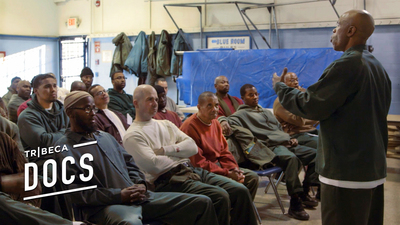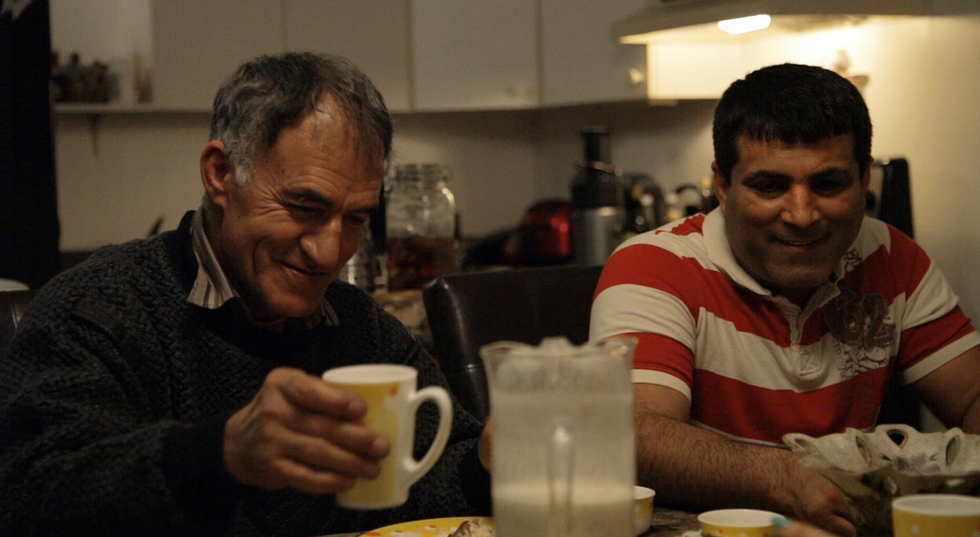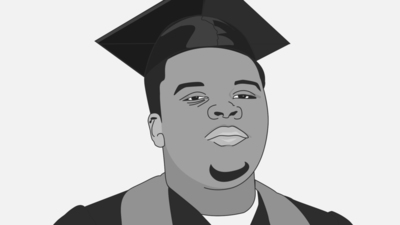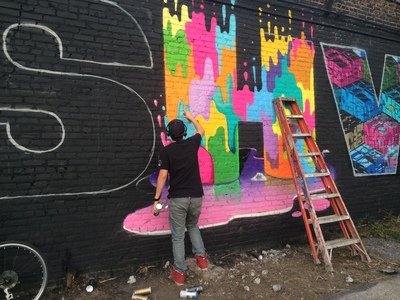
BY MATTHEW ENG |
Tribeca Director Ann Shin Talks Her Oscar-Shortlisted Documentary MY ENEMY, MY BROTHER
After its world premiere at the 2015 Tribeca Film Festival, Ann Shin's MY ENEMY, MY BROTHER has gained the Academy's attention.

Back in October, the Academy of Motion Picture Arts and Sciences announced the ten films shortlisted for the Best Documentary Short category. Among those singled out were two immensely powerful and widely feted 2015 Tribeca Film Festival world premieres. The first is David Darg's eye-opening Body Team 12, which comes from the VR outfit RYOT Films and follows the grisly efforts of Ebola workers in West Africa.
The second is Ann Shin's astonishing My Enemy, My Brother, which tells the story of Najah, a drafted Iraqi soldier with a wife and child, and Zahed, an Iranian boy who ran away from home to join the army and risked his life to save Najah on the battlefield. Shin's moving and multifaceted 16-minute short chronicles the reluctant comrades' chance reunion in Toronto as refugees some 25 years after surviving brutal warfare and protracted imprisonment. (You can watch My Enemy, My Brother below in its entirety.)
We spoke with Shin about her incentive for documenting Zahed and Najah's remarkable reunion, My Enemy's unfortunately continued relevance, and what the unexpected Oscar consideration signals for the film's future reach.
How did you initially come across Zahed and Najah's story?
Every once in a while a story comes and grabs you, and as a filmmaker you're compelled to make it into a film—you'll do anything to make it happen. I felt this way about Zahed and Najah's story. I first learned about them in a magazine article and was moved by the miraculousness of their story—two enemies who saved one another on the battlefield meet again under astonishing circumstances. I immediately set about to find them and tracked down their phone numbers, then flew to Vancouver to meet them. When I met them, we sat down together with cups of mint tea, and they told me their story in what turned out to be a five-hour meeting. By the end of I was hooked, I knew I wanted to share their story with a wider audience because theirs is an inspiring, positive story about two former enemies who were decent and kind to one another under inhumane circumstances. I started filming with them the weekend that I met them and have been following them ever since.
What were your expectations for My Enemy, My Brother’s distribution and post-production life?
From the start, I knew the scope of this story merited feature-length treatment, but initially we only had enough funding for a short. I set about the task of shearing away whole chapters of the full story to focus on the most important moment, and crafted a short film around that moment. With help from Bob Culbert and Gina Dineen at Bravo, we finished the short film, and we all really liked it, but we didn't know what to do with it. I didn't know there was much of a market or appetite for short documentaries. As an afterthought we sent it to The New York Times Op-Docs and started sending it out to festivals. We were so pleased to learn it would premiere at Tribeca Film Festival. It went on to play at dozens of other festivals, winning Best Short Documentary at the Traverse City Film Festival, with Michael Moore on the jury, as well as The Sepanta Award and others.
When Jason Spingarn-Koff and Kathleen Lingo at Op-Docs took the film, that brought a whole new level of exposure to it. With Jason exec-ing the film, it got a theatrical screening and was submitted to the Academy for consideration. We were all over the moon when we discovered it was shortlisted. I never imagined this short doc would have such a full life and reach so many people. I'm very grateful.
What has the attention from the Academy meant to both the film and to you as a filmmaker?
When I first got the email notice from the Academy that My Enemy, My Brother was shortlisted, I thought, "Okay, this is a nice surprise—I hope it gets nominated." And I didn't think much more about it. I had no idea that being selected into a shortlist was a thing in and of itself! The film has had more screenings in San Francisco, New York, and Los Angeles, and through these screenings and events, I've met many great filmmakers and film supporters in each of these communities. It's new for me, as a filmmaker based in Toronto. It's been gratifying to meet so many people who champion this little doc.

What do you hope the film, or, more specifically, Zahed and Najah's friendship, can teach audiences about the personal costs of warfare, especially at a time when so many people are filled with such irrational, generalized hatred for the Middle East?
For all the coverage of the Middle East, there are precious few stories from the region that are positive. That's what really moved me about Zahed and Najah's story: They're just two regular guys who happen to be from Iran and Iraq and who showed extraordinary courage and compassion during a time of war and later in life when each struggled with the trauma associated with the war. My Enemy, My Brother is a moving story that transcends the religious and cultural distinctions that so frequently threaten to divide us. I hope it's a timely reminder of the common humanity we all share.
Do you still keep in touch with Zahed and Najah?
I've continued filming with Zahed and Najah and a lot has happened with them. Zahed declared bankruptcy, then was evicted from his home, and now he has opened up an auto shop called Bestman Auto Service Shop. If you live in Vancouver, go to it! Zahed has also heard news of his parents. His father in Iran has been diagnosed with a brain tumour and is not doing very well. Zahed hopes to go back to Iran to find his parents and see his father one last time, but is concerned about stepping foot in Iran again.
Najah, too, has had his ups and downs. He had a stroke, and it took him a while to recover from it. In the meantime he learned from relatives back in Iraq about a young man who could possibly be his missing son. Najah's family has opposed him going back to Iraq for reasons of safety, but it looks like he's planning to go anyway this year. We've been preparing for DNA testing for Najah and this young man, and I'll be following him back to Iraq very soon.

